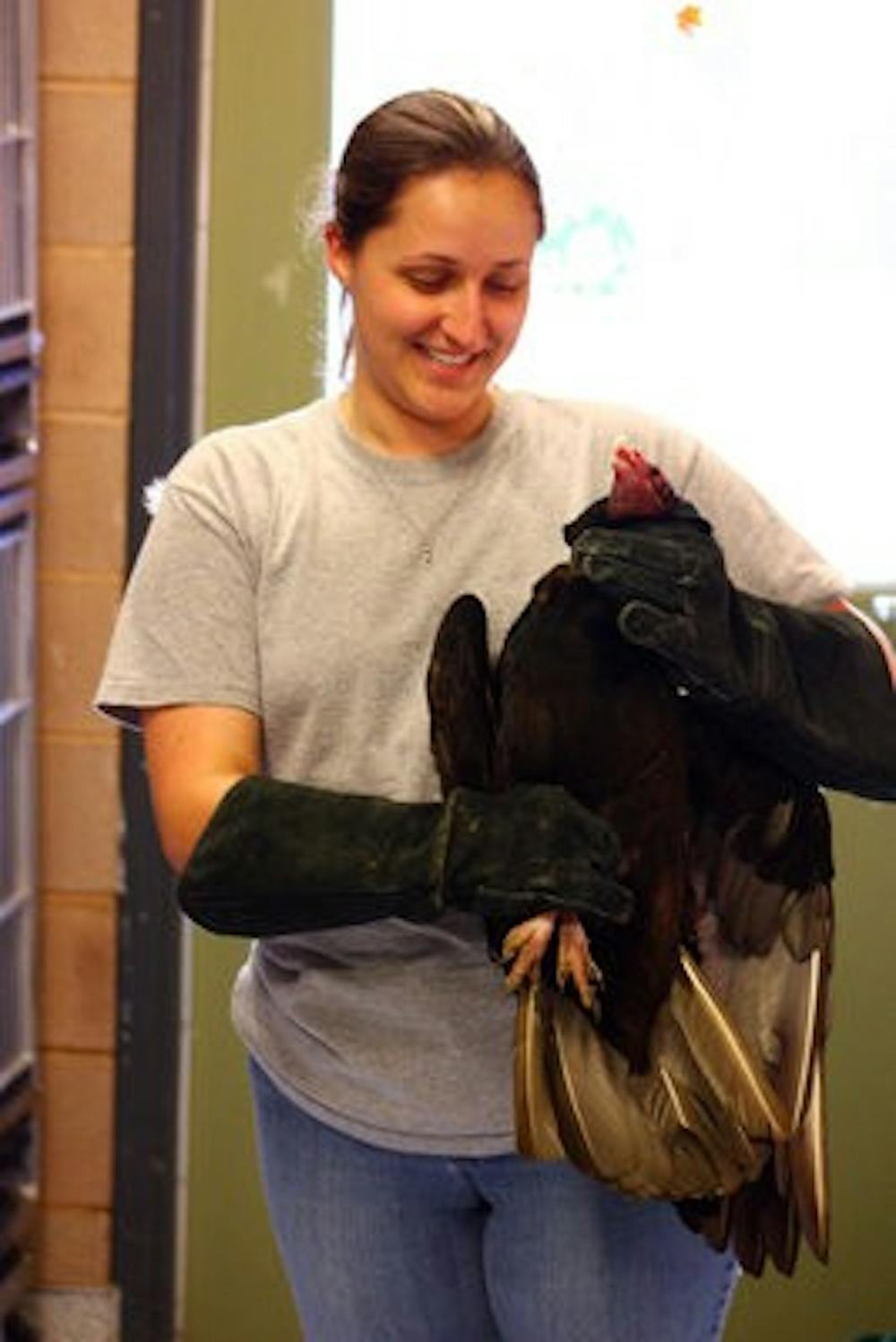Even though football season is over, Nova and Spirit, along with many other predatory birds, are still pampered and rehabilitated by the technicians at the Southeastern Raptor Center.
SRC takes in 200 to 275 birds a year, said Liz Crandall, raptor rehabilitation specialist.
Crandall helps Dr. Jamie Bellah, SRC director and head veterinarian, with coordinating the volunteers and managing medical cases in the rehabilitation section.
"Most of (the injured birds are) present for trauma," Crandall said. "(Trauma from) impact with cars, windows, gun shot trauma, barbed wire fence injuries and orphaned birds."
SRC helps birds from all over the Southeast.
"We take in birds from Florida, Mississippi, Georgia and, of course, Alabama," Crandall said.
Crandall said she does not have a favorite bird of prey.
"I enjoy working with all of them, even the vultures," Crandall said. "I can't imagine working with anything else. When compared to dogs, cats and pet birds, not much is known about birds of prey when it comes to veterinary medicine. So this makes them challenging and interesting species to work with."
The staff of the SRC rehabilitation section consists mainly of volunteers with three to four paid students, Crandall and Bellah.
"We are fortunate to work with the staff of AU College of Veterinary Medicine," Crandall said. "We work with clinicians that specialize in ophthalmology, orthopedics, radiology and neurology."
Most of the volunteer staff are undergraduates, Crandall said.
"I started as a volunteer with the Raptor Center almost two years ago," said Matt Wilson, senior in communication. "There was a young man doing a campus program on the Concourse and he had a falcon with him named Nadeira. Before I knew it,
I was cleaning mews (bird cages) and feeding birds. I loved it. Speaking from experience, it's very rewarding and time well spent."
More than 20 birds are cared for by Roy Crowe, eagle consultant and raptor education specialist; Marianne Hudson, raptor education biologist; Crandall and many other volunteer workers, Wilson said.
"We always need volunteers," Crandall said. "Our volunteers perform the daily husbandry tasks. This includes cleaning cages and aviaries, preparing food and feeding up to 100 birds of prey daily. (The volunteers) also assist the medical staff with diagnostics, treatments and surgery."
Hudson said she appreciates the help of the volunteers.
"We are able to focus on our missions of reha- bilitation, education and conservation with great thanks for the hard work of our volunteers," Hudson said. "They donate their time to help us heal the injured birds and teach student of all ages."
Do you like this story? The Plainsman doesn't accept money from tuition or student fees, and we don't charge a subscription fee. But you can donate to support The Plainsman.





